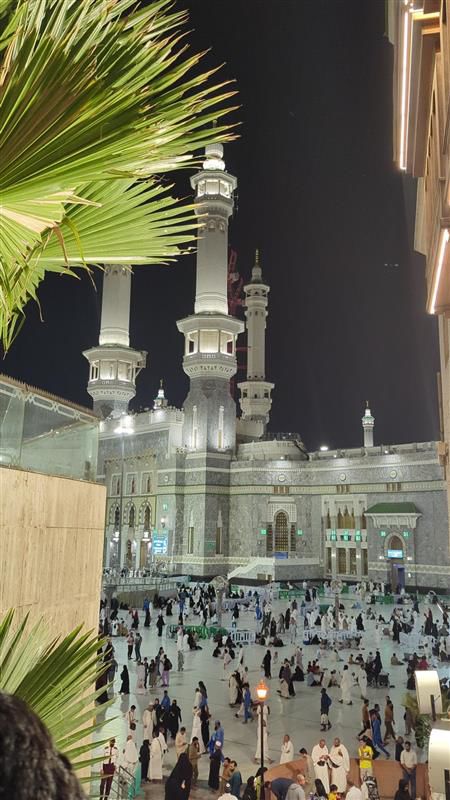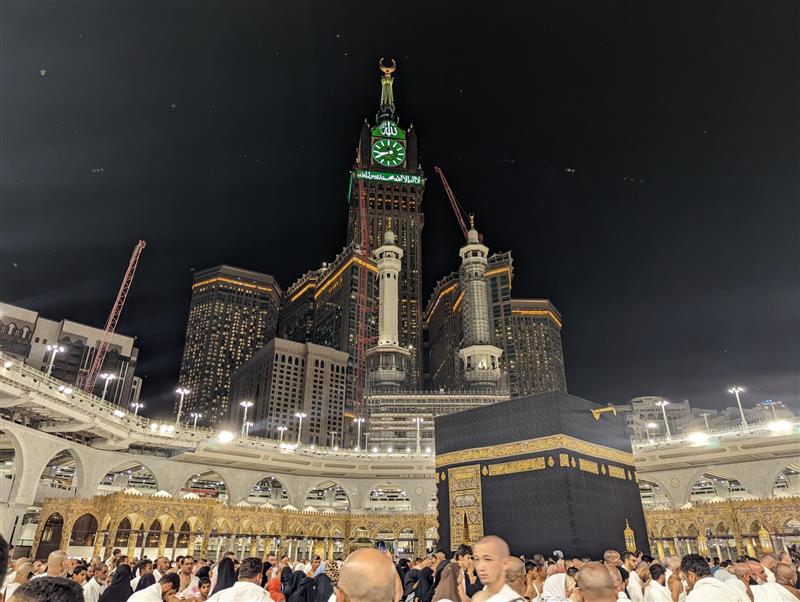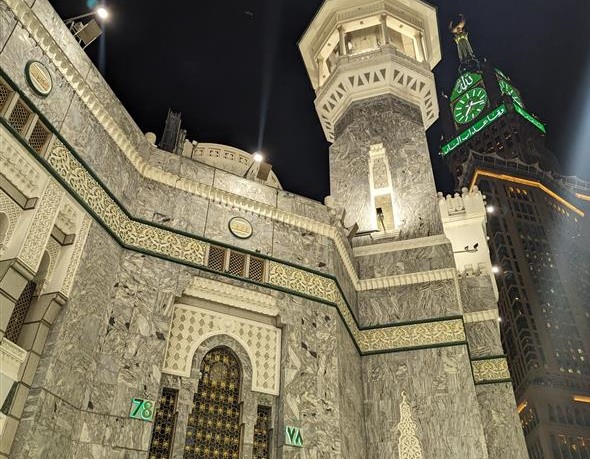From Muirhead to Mecca: Sobia shares her spiritual journey
 Masjid al-Haram, the Great Mosque of Mecca
Masjid al-Haram, the Great Mosque of Mecca
Sobia Baig, Executive Officer in the School of Government, College of Social Sciences, embarked on a spiritual journey this year. Stepping away from her desk in Muirhead Tower, Sobia shares her story of navigating enormous mosques and enduring long walks amidst scorching heat in Saudi Arabia, and how she prepared mentally, physically and emotionally for this pilgrimage.
Milestone
Undertaking a pilgrimage is a significant milestone for many Muslims around the world. It's a journey of faith, self-discovery, and spiritual rejuvenation.
As I set foot on the sacred grounds of Makkah and Medina for my own pilgrimage, known as Umrah, this marked a profound chapter in my life that I had long yearned for.
In Islam, there are two forms of pilgrimage: Umrah and Hajj.
Umrah, unlike Hajj, which is performed once a year, can be undertaken at any time of the year. Both are deeply rooted in the faith and hold immense importance for believers.
Umrah, often referred to as the 'lesser pilgrimage', involves performing a series of rituals in the holy city of Makkah including the Tawaf (circumambulation) around the Kaaba, Sa'i (walking between the hills of Safa and Marwa) and shaving or trimming the hair.
Though not compulsory, Umrah holds great significance for Muslims and is considered a spiritually rewarding journey and is performed whilst under the state of Ihram. Ihram refers to the state of ritual consecration that we enter before performing Umrah or Hajj. It involves wearing special clothing, typically consisting of two seamless white cloths for men and modest attire for women, representing purity and equality before God. While in the state of Ihram, we must adhere to certain restrictions, such as refraining from cutting our hair or nails, using scented products, engaging in marital relations, and hunting or killing animals. Ihram signifies a state of spiritual readiness and humility.
Prepared
For me, Umrah wasn't just a religious obligation; it was a profound spiritual journey that I felt I needed to be prepared for mentally, physically, and emotionally. I decided to take charge of planning the pilgrimage myself, rather than relying on a travel agent. Surprisingly, arranging the trip turned out to be much easier than I anticipated.
With the aid of online resources like Skyscanner, Qatar Airways, Booking.com, and the Saudi Arabian e-visa waiver system, I meticulously organised my itinerary. Securing flights, accommodations, and transportation, including the convenient Haramain train from Makkah to Medina, became seamless tasks. The total cost of the two-week journey was reasonable, ensuring a memorable yet budget-friendly experience.
Upon arriving in the holy cities, I was greeted by a diverse congregation of pilgrims from all corners of the globe. The sense of unity and shared purpose among millions of individuals, irrespective of their backgrounds or ages, was truly inspiring. As I immersed myself in the rituals of Umrah, I felt a profound sense of connection to my faith.

The Holy Kaaba at the Grand Mosque in Mecca and the Makkah Royal Clock Tower
Surprise
One aspect that caught me by surprise was the relative ease of performing the pilgrimage itself, which typically takes two to three hours. However, navigating the enormous mosques and enduring long walks amidst the scorching heat posed physical challenges. Yet, the spiritual rewards of offering prayers in the grand mosques of Makkah and Medina far outweighed any discomfort. It is said that performing 1 prayer in the mosque in Makkah equates to 100,000 prayers and performing 1 prayer in Medina Mosque equates to 1000 prayers.
Access to constant Zamzam water, which is considered holy sacred water by Muslims, provided much-needed sustenance given the sweltering temperatures reaching 35 degrees Celsius during my visit. Additionally, I found pre-preparation invaluable, such as familiarising myself with the life of Prophet Muhammad (peace be upon him) through insightful resources like the Spotify series which made Ziyaret visits to holy places much more invaluable.
Lessons

As a first-time pilgrim, I gleaned invaluable lessons from my trip and insights that I intend to apply on future journeys. Some practical tips I would recommend are to carry a drawstring bag for shoes when praying in the mosque, as well as carrying a water bottle for unlimited access to Zam Zam water. There are many forms of charity to do whilst out there, such as buying a wheelchair, a stool, giving money to workers and/or buying a Quran for the mosque. Other recommendations include writing down your specific Dua’s (prayers) as it can feel quite overwhelming and distracting at times therefore this will allow you to focus on your requests to God.
In retrospect, my first Umrah experience was filled with moments of reflection, prayer, and profound gratitude. As I eagerly await my next invitation from the Divine to return, I carry with me cherished memories and a renewed sense of spiritual fulfilment.
Ramadan
A guide to Ramadan is available and has been produced in conjunction with Muslim colleagues, aiming to help improve understanding of Ramadan.